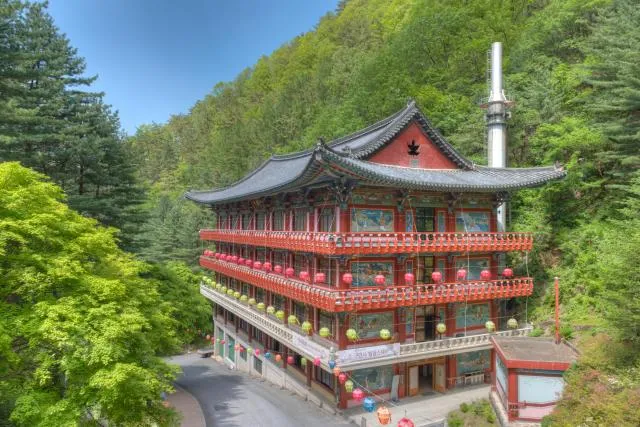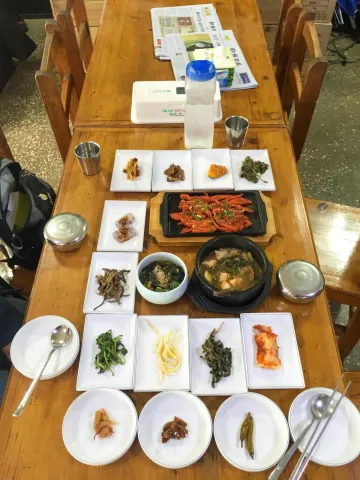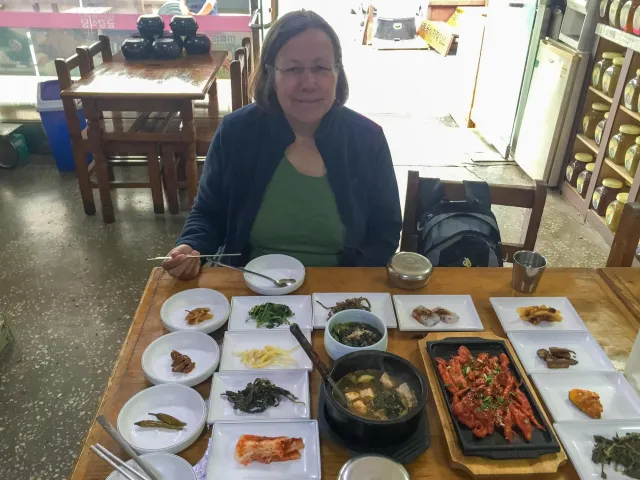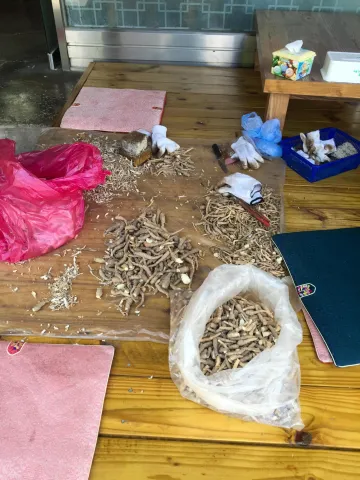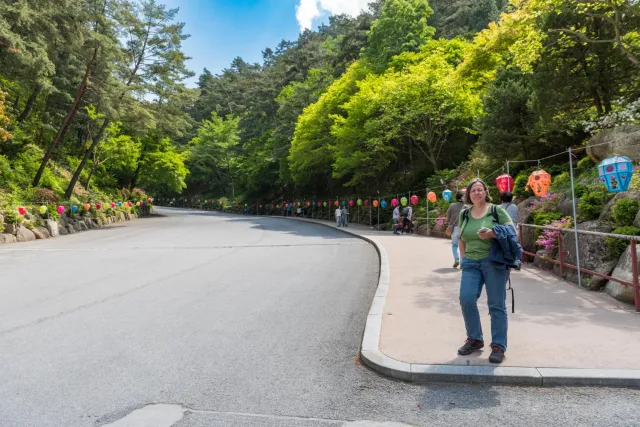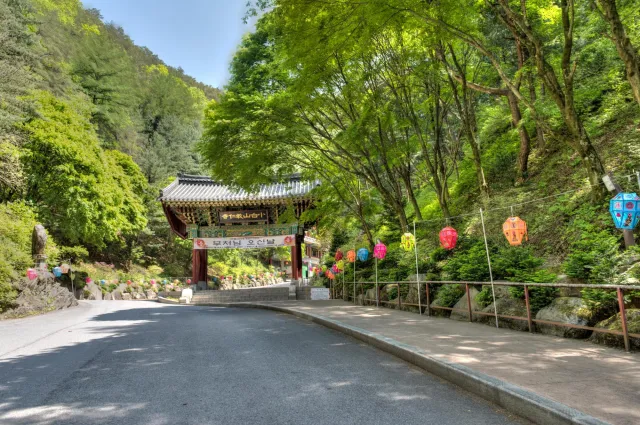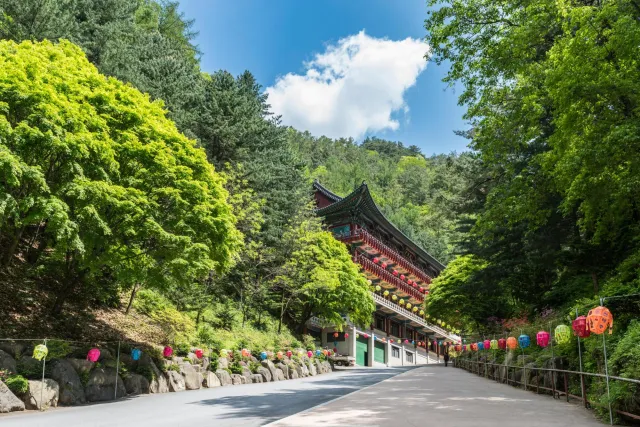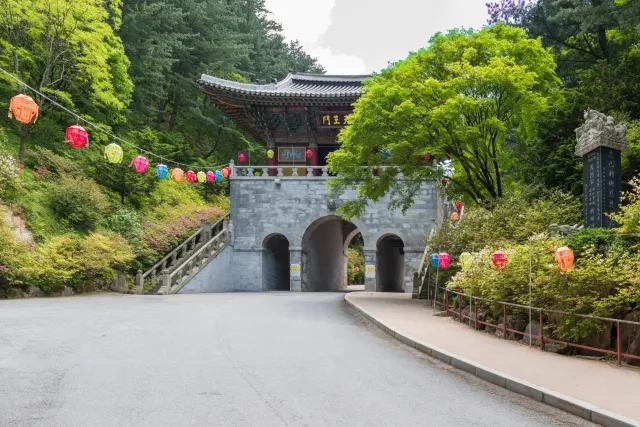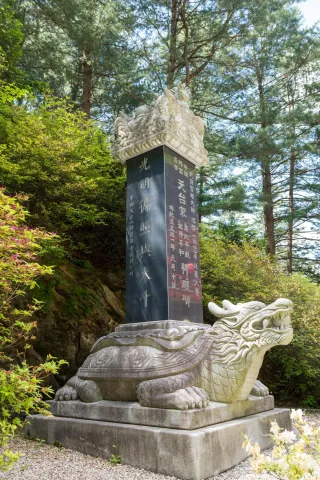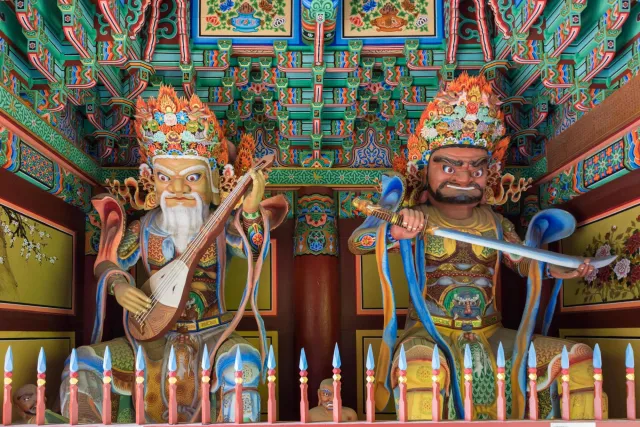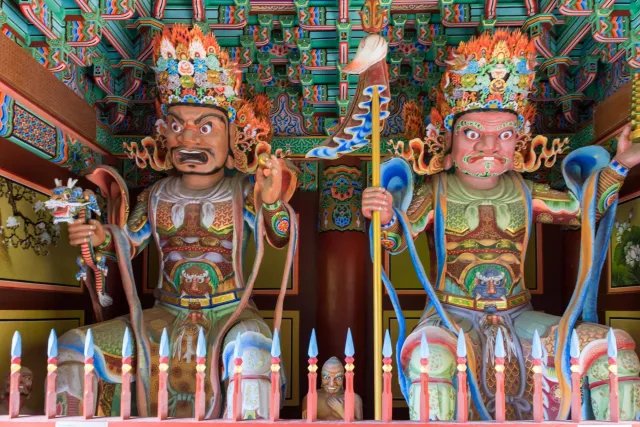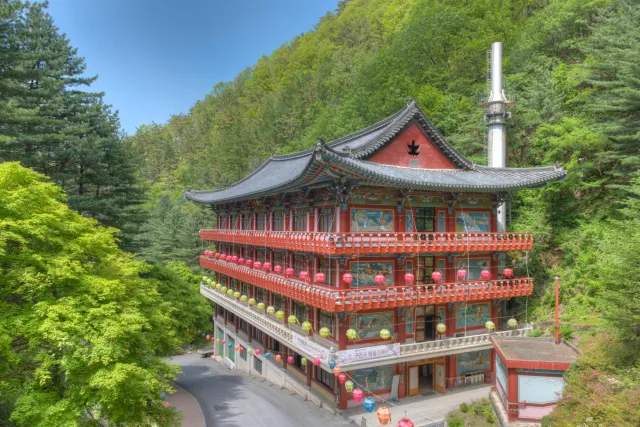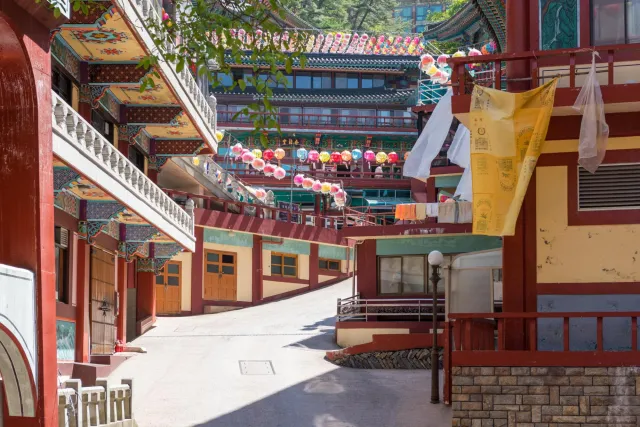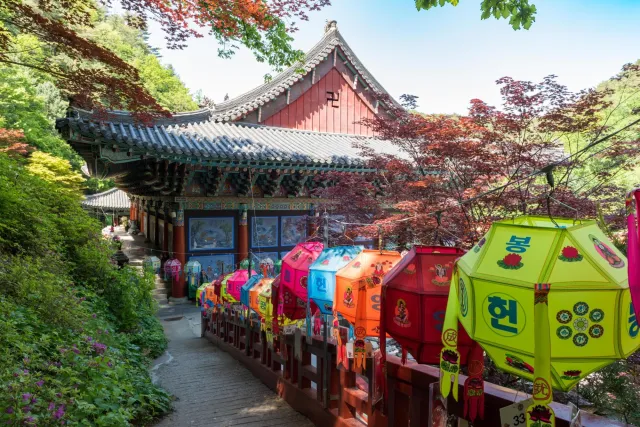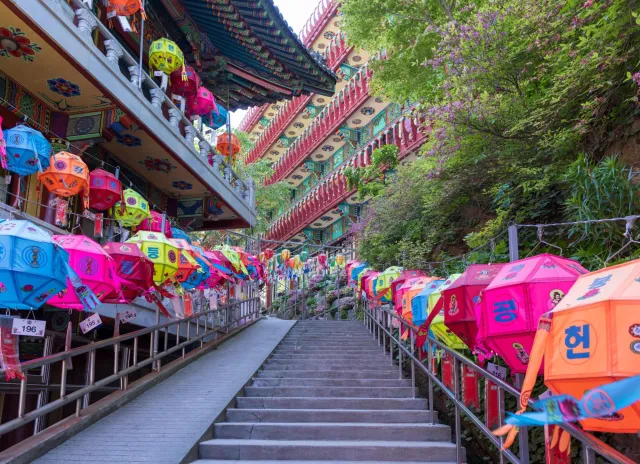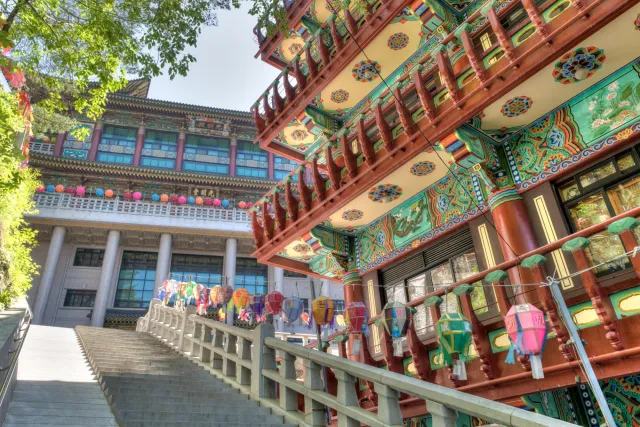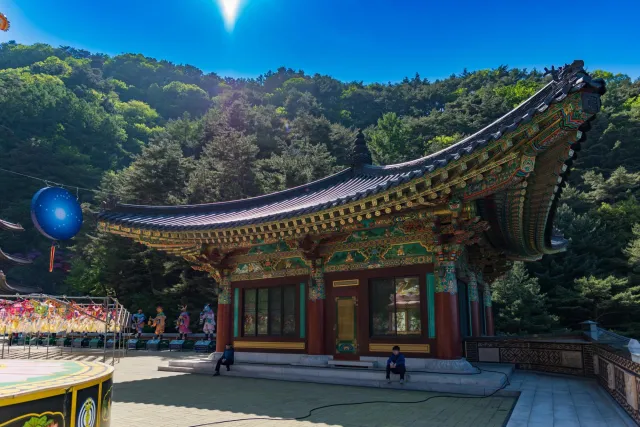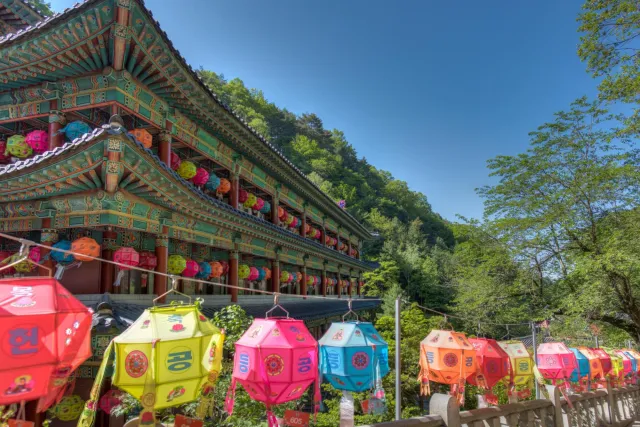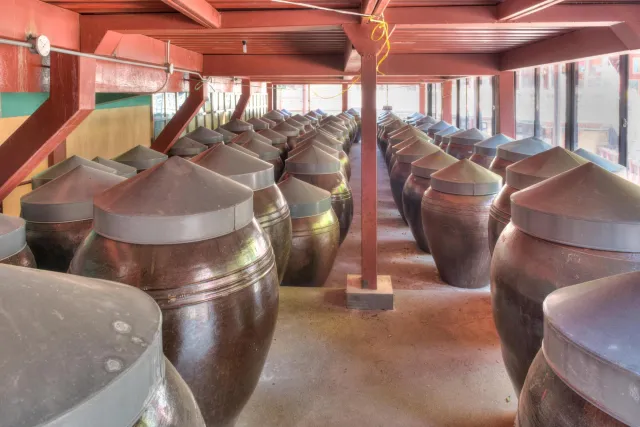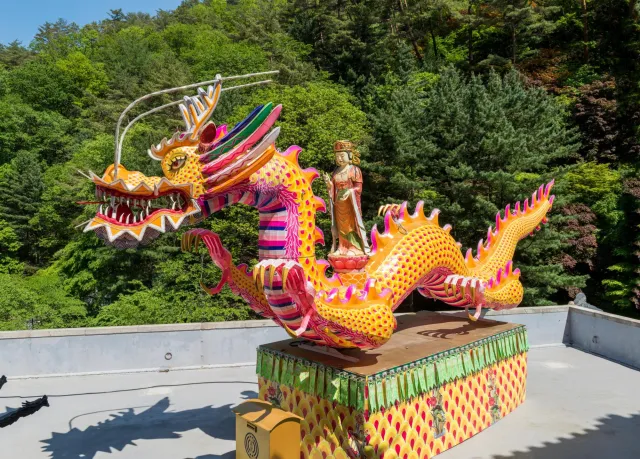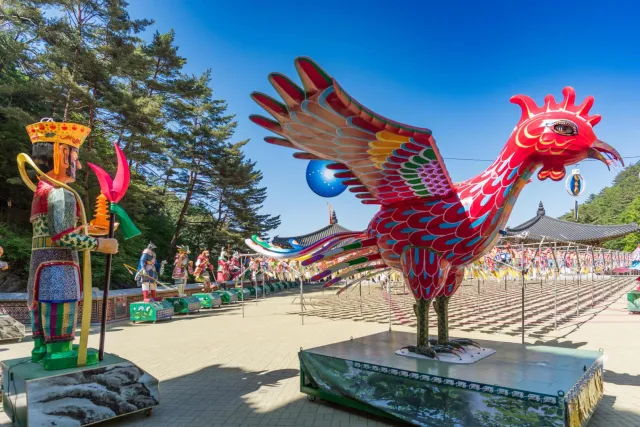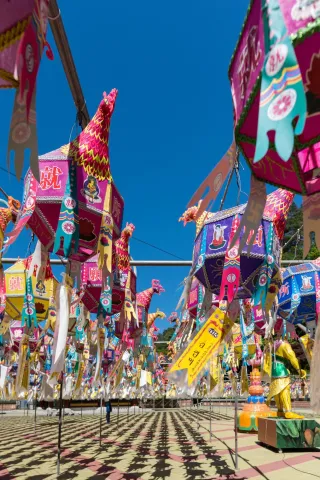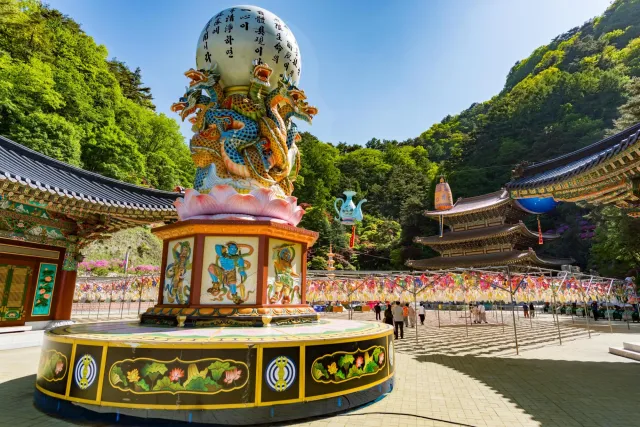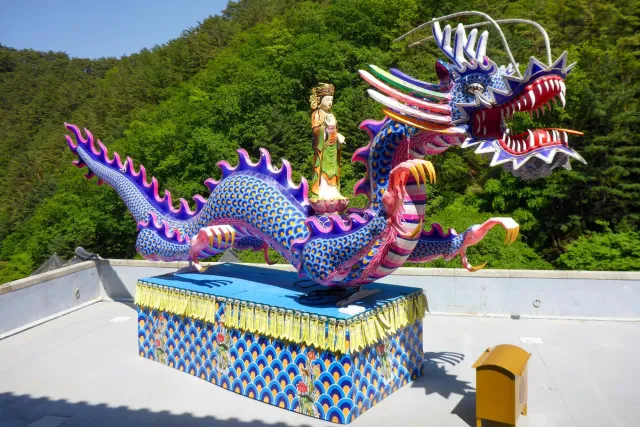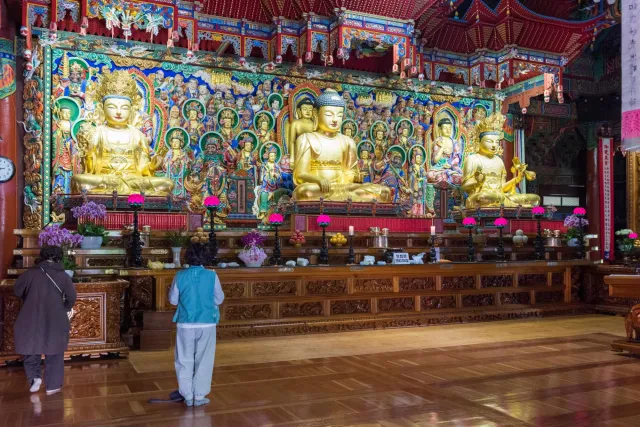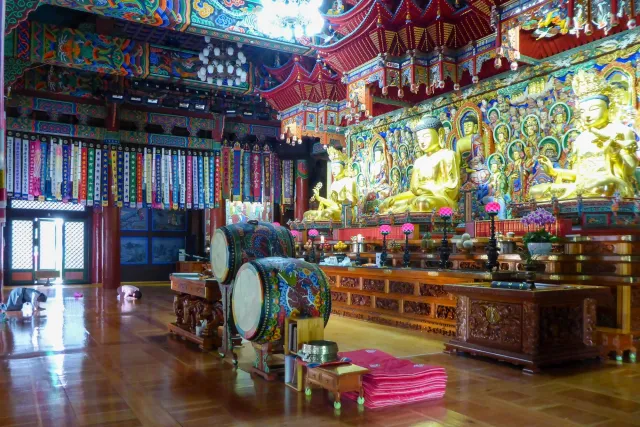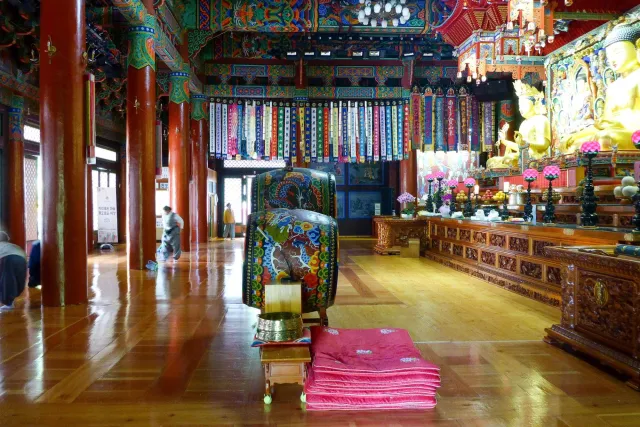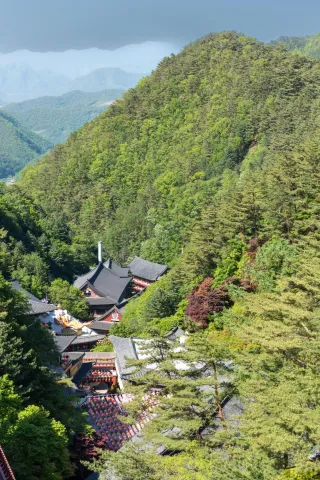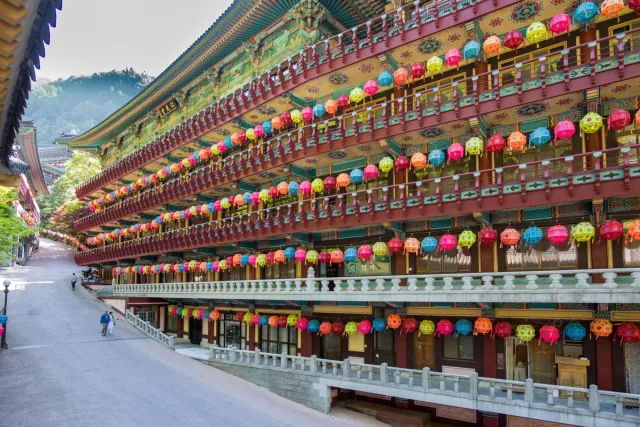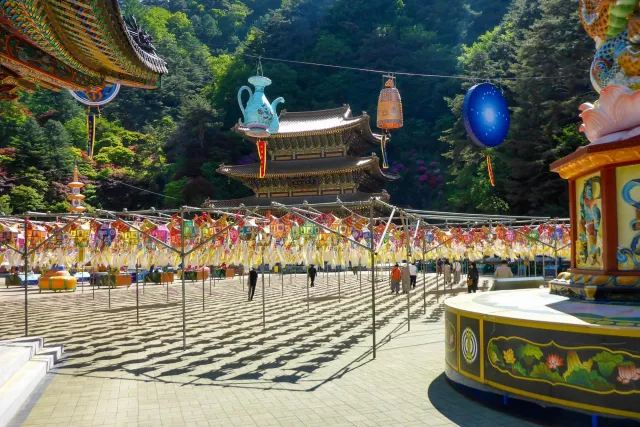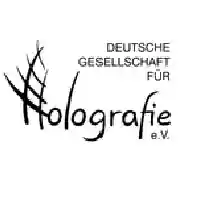The Guinsa Temple of Salvation and Goodness is located in the Yeonhwa area of the Sobaek Mountains near Danyang in Chungcheongbuk-do, South Korea. It is the headquarters of the Cheontae sect of Korean Buddhism. From here more than 140 sub-temples and hermitages of the Cheontae school are administered.
In the arrivals area we discovered a restaurant where we were offered an extensive Korean menu. The main ingredient was Deodeok roots, which are harvested regionally and whose healing powers were described to us in detail. Then we walked uphill to the highest platforms of the large temple complex.
The architecture of Guinsa differs from other Buddhist temples in South Korea in that the structures here have multiple floors instead of the typical one or two floors of classical temples.
This is partly due to the limitations of the narrow valley, but also due to the more modern construction techniques, since unlike many Korean temples, Guinsa is fairly new and was only built in 1945.
The ubiquitous black slate roof tiles commonly found on Korean temples are occasionally replaced with orange glazed roof tiles reminiscent of the roof tiles of Beijing's Forbidden City. Some buildings resemble the Potala Palace in Lhasa by their height and vertical lines.
The five-story Dharma Law Hall (5층대법당 Ocheung Daebeoptang) is now the tallest building of its kind in Korea.
Up to 10,000 monks can live here at one time, while the kitchen can serve food for twice that number if required. The temple operates a large farming system that produces much of the food prepared and consumed in the temple.
